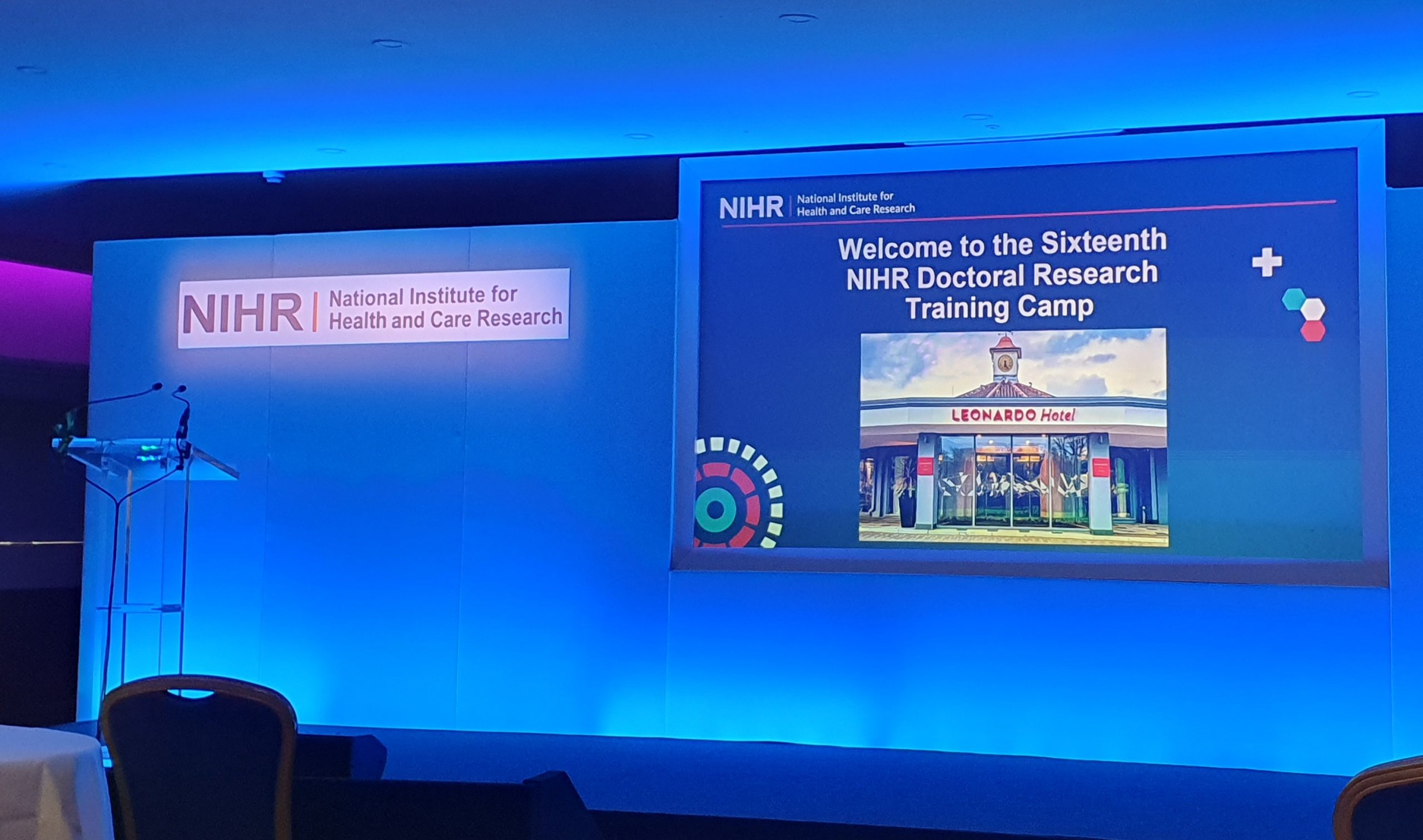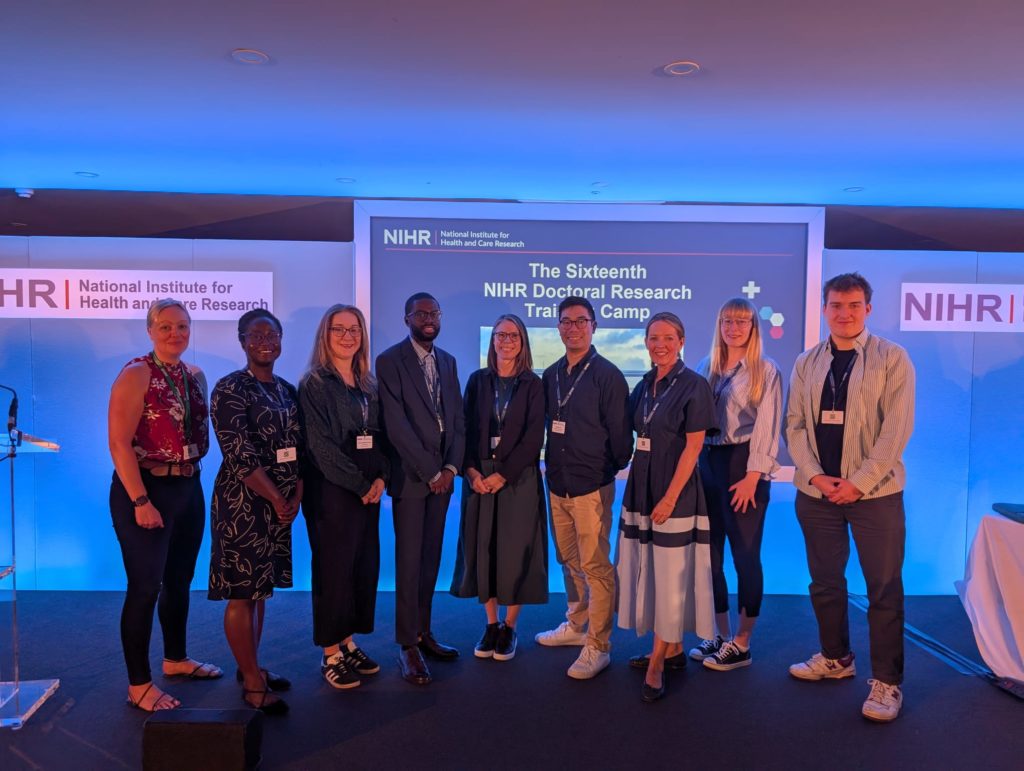Exeter Collaboration for Academic Primary Care (APEx) Blog
Exeter Collaboration for Academic Primary Care (APEx) Blog

Posted by ma403
11 July 2025From 7th-9th July, I attended the 3-day National Institute for Health and Care Research (NIHR) Doctoral Research Training Camp in Hinckley. I wasn’t too sure what I was letting myself in for in advance, I mean how “intensive” could training on grant writing and applying for further funding be? As it turns out, very! As one previous attendee described it, it’s like being on the Apprentice but for healthcare research.
The task is to work in teams to design, write and submit a (fictitious) research grant proposal for up to £500k in less than 24 hours, and then pitch and defend your proposal to an expert review panel in front of 100+ delegates – easy right? Did I mention that you’ve never met your team before, your proposal will be on a totally different area of healthcare to your usual area of work, and that you might have a surprise policy pitch halfway through the day? Stressed doesn’t cut it, but being fictional at least we weren’t going to get fired!
However, as scary as this may sound, it was one of the best trainings I’ve been to – a seamlessly organised whirlwind that got the balance just right between pushing us out of our comfort zones, while supporting us to build on our collective strengths and achieve what (at the start of the event) seemed improbable at best. Our PREVAIL study – looking at RSV vaccine uptake in pregnant refugees – may have been fictional, but how fitting the name turned out to be!
So what did I learn?
Although the ~24hr deadline imposed on us is (thankfully) not the case when developing a funding application in real life, it taught me a great deal about what is fundamental to good grant writing when all else is stripped away. Here are 7 areas that I will consider when next writing a grant application:
So, to wrap up, if you’re an early career researcher thinking about attending this training in the future I would say without a doubt, do it! You’ll leave exhausted but having worked with some amazingly talented people. Oh, and don’t over-plan beforehand – the proposal never ends up where you think it will anyway!
Finally, I would just like to say a huge thank you to my PREVAIL study teammates, our mentors and Patient and Public Involvement and Engagement advisors (who were invaluable), the camp organisers and to NIHR School for Primary Care Research (SPCR), APEx and my supervisors for supporting me to attend.
By Amy Chinner (1st year NIHR SCPR funded PhD candidate)
I acknowledge the use of GenAI (ChatGPT) in the creation of our fictional study’s name and in the generation of a template to inform the structure of this blog.
